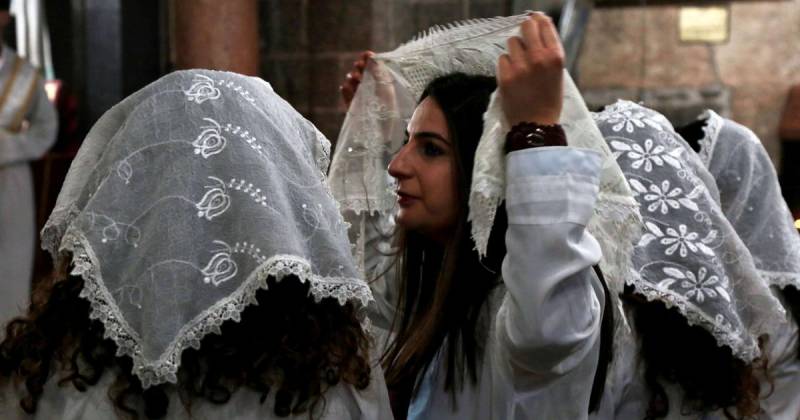A photograph on the Voice of America website last month showed Armenians in Diyarbakır, my hometown, celebrating Easter in a café, as they still had no access to their church.
The curfew put in place by Turkish authorities in December 2015 remains in effect in the 6 districts of Sur, the ancient centre of Diyarbakır, where the Surp Giragos Armenian Church is located.
During the clashes between young Kurdish insurgents and the Turkish state, military curfews were declared in mainly Kurdish cities throughout southeast Turkey. The military operations ended in early 2016, leaving more than 1000 dead as well as demolished city centers and hundreds of thousands of homeless people.
Watchdogs and observer groups have published many reports on rights violations during and after the 2015-2016 clashes. But little has been published about the impact on the region’s minorities, including Armenians, Assyrians, Chaldeans and other Christian groups.
After more than two years of peace, the war started again in late 2015. Leaders of the local Assyrian and Chaldean communities were among the thousands detained. One of them was my friend, Sado Ide Oshana, president of the Association of Assyrians, Chaldeans, and Aramis (AACA). He was accused of being a member of a terrorist organization and imprisoned. After 14 months, he was released and fled the country.
In March 2017, the police stormed the home of an Assyrian leader in Midyat, Yuhanon Aktas. He was arrested and accused of being a member of the Kurdistan Workers’ Party (PKK), which has led an armed insurgency for self-rule in Turkey’s southeast since 1984. Aktas had been an active member of the pro-Kurdish People’s Democratic Party (HDP) and the chairman of a leading Assyrian federation in Mardin.
A well-known Chaldean Christian, Petrus Karatay had recently returned from Paris after 30 years to help build up his ancestral village in Şırnak province. After he saw Turkish soldiers starting fires in the mountains around his village, he bravely told journalists what he had seen. He was accused of being a member of the PKK and imprisoned in early 2018.
In the last few years, most Assyrian and Chaldean organisations have been closed. After Oshana’s imprisonment, the AACA stopped its activities. With the declaration of the State of Emergency in August 2016, the Assyrian Cultural Association closed, like many regional NGOs.
“The state only gives permission to the NGOs who work closely with the state,” an Assyrian friend from Midyat told me. “But if you voice your opposition as a Christian NGO, it is hard to work and to continue.”
These arrests send a warning to Christians still living in Turkey’s southeast and to those who left long ago and may one day hope to return. Many Christians who still live in the region have begun selling their homes and moving to West. The violence and oppression they witnessed during and after the military operations of 2015-2016 horrified them. They have lost all hope of living peacefully in Turkey.
This week I spoke with one of my Assyrian friends, who asked me not to use her name as she faced investigations and lost her job during the state of emergency.
“Assyrians in Europe have completely lost hope of returning to their lands in Turkey. Assyrians like me who were living in Kurdish cities were forced to leave. I sold my house and now live in western Turkey. Turkey is not a safe place for Christians who use the term ‘genocide’ and who ask for justice for 1915,” she told me.
“After 100 years, in 2015, we faced a second deportation. Many of us were forced to leave our lands. I have no hope for this country. I no longer have a dream to return to my city Midyat. This country has used us up.”
Since the founding of the republic, this country has used all its minorities.
© Ahval English
The views expressed in this column are the author’s and do not necessarily reflect those of Ahval.
